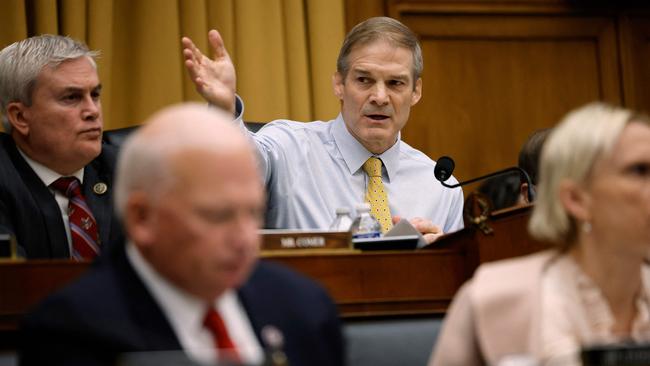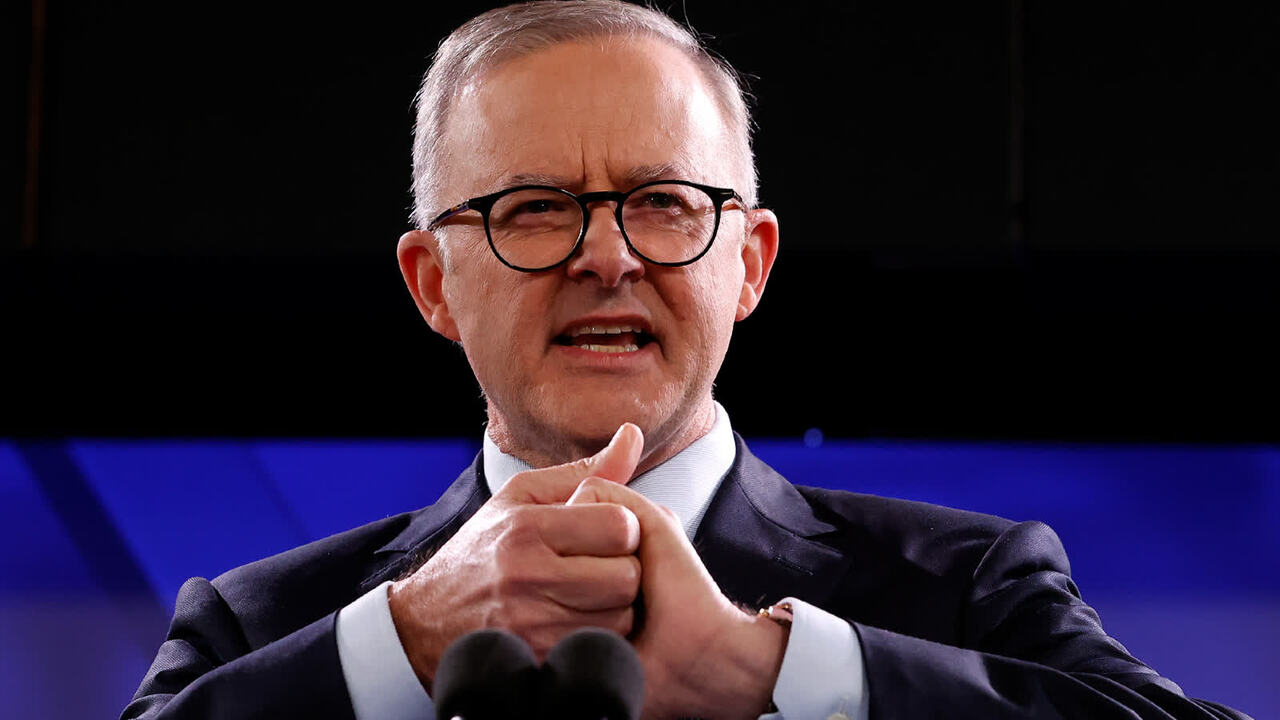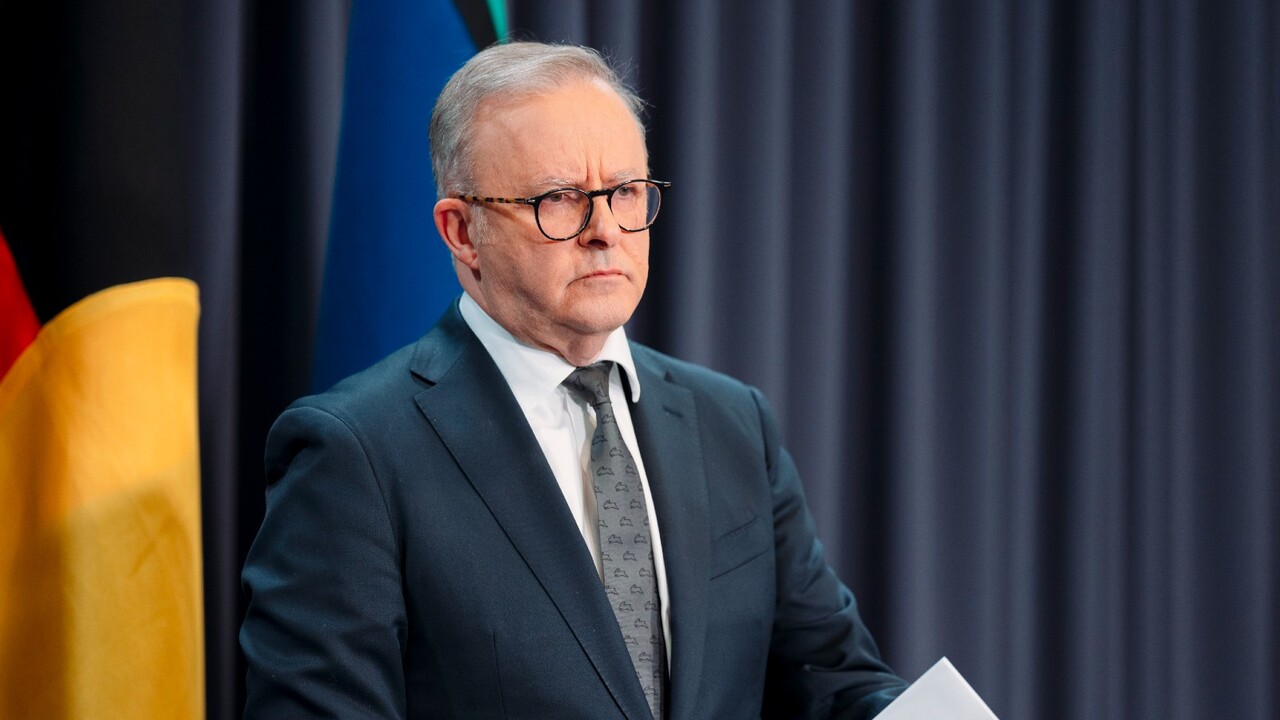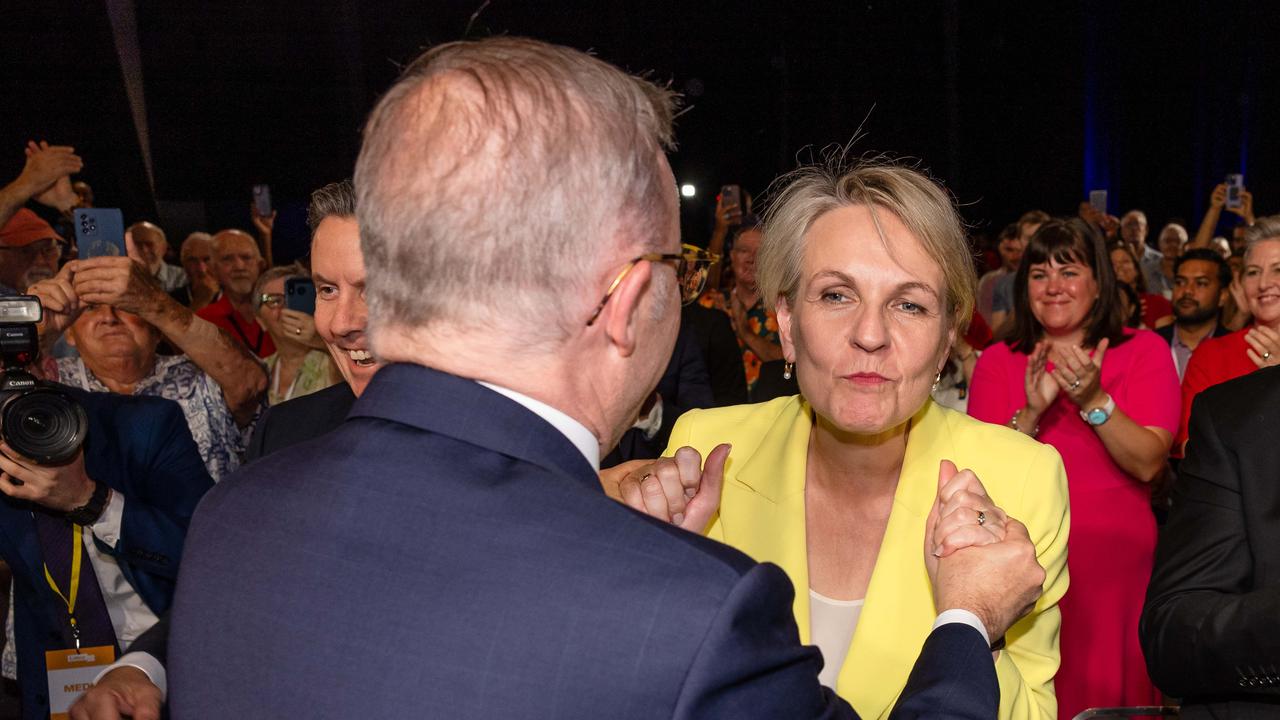Greens torpedo misinformation bill as top Trump ally raises concerns
The Greens cited concerns that the bill doesn’t ‘actually do what it needs to do’, as one of the top Republicans in the US Congress accused the Australian government of seeking to ‘censor speech worldwide’.

The Greens will oppose Labor’s legislation combatting online misinformation citing concerns that the bill doesn’t “actually do what it needs to do”, as one of the top Republicans in the US Congress accuses the Australian government of seeking to “censor speech worldwide”.
In a final blow to the legislation that would empower the media watchdog to fine social media giants for false and harmful content on their platforms, Greens communication spokeswoman Sarah Hanson-Young revealed on Friday the left-wing party would vote with the Coalition against the controversial legislation.
Senator Hanson-Young said while her party believed in the need to fight the spread of misinformation, the party had come to the position that the government needed to introduce “comprehensive reforms that tackle the business models and dangerous algorithms that fuel division and damage democracy”.
“The Greens understand that mis and disinformation is a growing danger to democracy, public discourse, health and safety both in Australia and around the world and needs to be tackled,” she said.
“However we are concerned this bill doesn’t actually do what it needs to do when it comes to stopping the deliberate mass distribution of false and harmful information.”
The announcement dashing Anthony Albanese’s hopes of passing the legislation comes as the bill makes waves in the US, with a senior Republican warning the outgoing Biden administration to press Australia that it risked impinging on Americans’ constitutional right to free speech.
In a detailed letter to the State Department, Jim Jordan, chairman of the Judiciary Committee in the House of Representatives, said the Communications Legislation Amendment (Combatting Misinformation and Disinformation) Bill, currently before parliament, could “pressure American companies to censor online speech outside of Australia, including in the United States”.
“We write to request more information about how the State Department intends to engage with the Australian government to address recent threats to free speech worldwide and their effect on American citizens,” the letter, addressed to Uzra Zeya, the Under Secretary for Civilian Security, Democracy, and Human Rights, said.
“There are serious concerns about how Australian authorities can continue to press for censorship and suppression of online speech outside of Australia’s borders”.
The bill appears to be headed for defeat in the Senate as soon as next week, after enough crossbench senators, including Lidia Thorpe and David Van, expressed misgivings about aspects of the legislation.

The three-page letter from a top Republican and well-known Donald Trump ally could point to an area of friction between the Albanese government and the incoming Republican administration which might take a dim view of a bill that would seek to fine American tech giants 5 per cent of their global revenue unless they censored claims and arguments the Canberra didn’t like.
“This proposed Australian legislation disproportionately targets American companies and will harm free speech worldwide, including in the United States — indeed, the legislation stipulates that it “extends to acts, omissions, matters and things outside Australia,” Mr Jordan added.
The letter, obtained by The Australian before it was sent on Thursday (Friday AEDT), took issue with how the bill’s “vague” definition of misinformation included claims that were “misleading or deceptive”, could “contribute to serious harm … to the Australian economy”, or those that questioned “the efficacy of preventive health measures in Australia”, such as lockdowns.
Incoming Vice president JD Vance in September said the US should look unfavourably on countries that sought to crack down on free speech, enshrined in the first amendment of the US constitution. “It would be insane that we would support a military alliance if that military alliance isn’t going to be that is not pro free speech,” he told YouTuber Shawn Ryan.
“American power comes with certain strings attached, one of those is respect free speech,” he added.

Mr Jordan in his letter, also addressed to Eileen Donahoe Special Envoy and Coordinator for Digital Freedom, said the Australian government had during 2021 pressured Twitter, now known as X, to censor a post by Martin Kulldorff after the Harvard professor of medicine argued lockdowns were “ineffective”.
Stanford professor John Ioannidis, among the most cited scientists in the world, told The Australian in 2023 he estimated lockdowns had killed people in net terms, after adjusting for the years of life remaining in those who were saved, owing to their impact on drug use and mental health, separate from the trillions of dollars in public debt they engendered.
Mr Jordan, who is also chairman of the Select Subcommittee on the Weaponization of the Federal Government, asked “how the State Department intends to respond to (1) the Australian government’s recently proposed legislation to curb free speech worldwide and (2) the Australian government’s other recent attacks on free speech, including against speakers located in the United States”.
The government’s push to beef-up censorship powers reflects similar efforts in the European Union, where top truth tsar recently sought to ban X if it broadcast an interview between Elon Musk and incoming president Donald Trump.
Accusations of misinformation and disinformation, which is misinformation that is knowingly disseminated to mislead, have exploded since the Covid-19 pandemic, when governments sought to shut down debate on the origin of Sar-Cov2 and measures to combat it.
In April Australia’s eSafety Commissioner, Julie Inman Grant, ordered X to remove globally videos of the Wakely terror stabbing or face daily fines of more than $700,000 before her request was ultimately overruled by Australian courts.







To join the conversation, please log in. Don't have an account? Register
Join the conversation, you are commenting as Logout